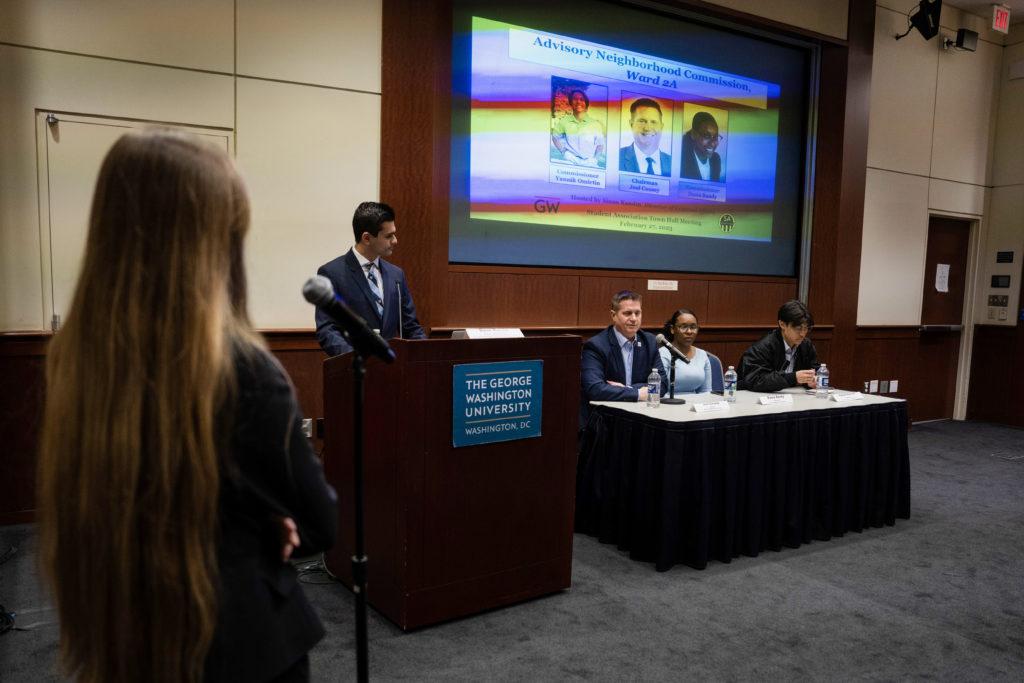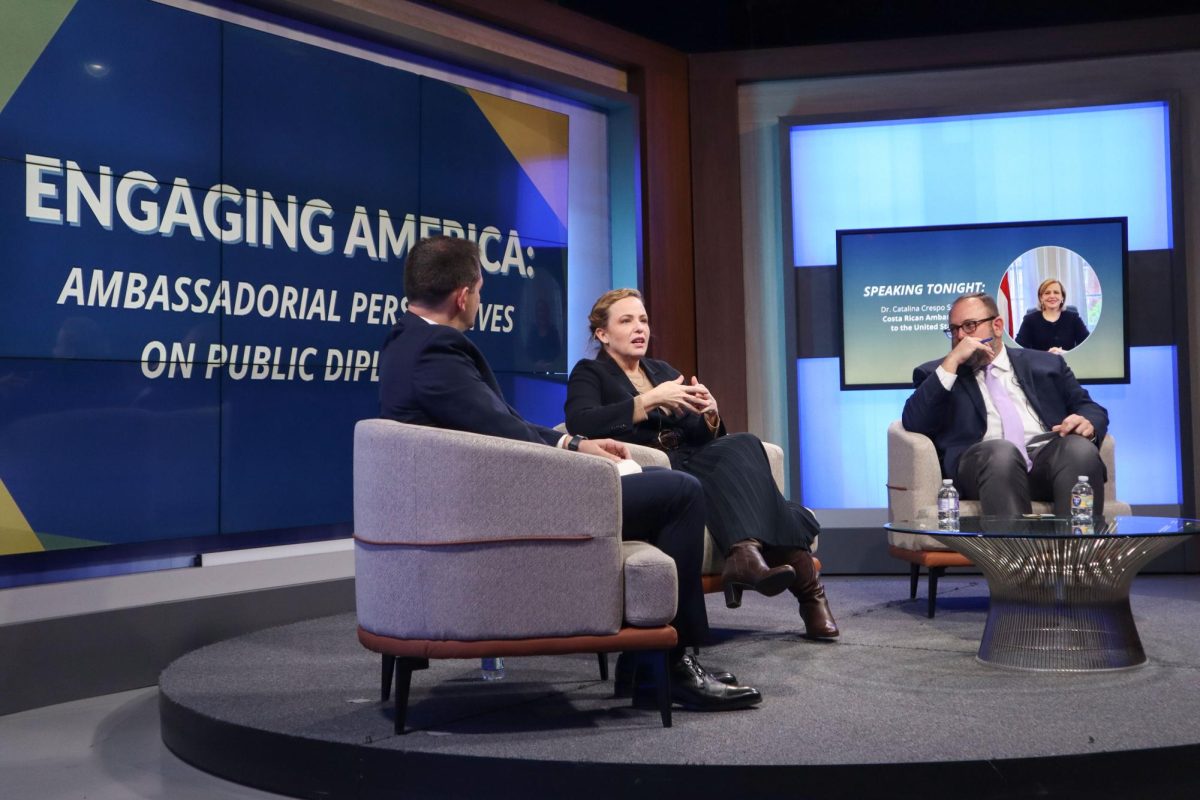In a panel moderated by the Student Association, three members of a local governing body, the Foggy Bottom and West End Advisory Commission, spoke to GW students Monday about how the body can advocate for students and encouraged students to find volunteer organizations in Foggy Bottom.
2A01 Foggy Bottom and West End Advisory Commissioner Yannik Omictin, 2A06 Commissioner Joel Causey and 2A07 Commissioner Dasia Bandy spoke to more than a dozen students, encouraging students to attend ANC meetings and participate in service projects through the Nashman Center. Sinan Kassin, the newly-appointed SA executive cabinet director of external relations, invited commissioners to speak in a moderated panel followed by audience questions to inform students about the ANC’s advocacy projects.
Omictin, a GW alum, said his advocacy begins with “protecting the most vulnerable people” in the community. He said he prioritizes sustainable, long-term solutions to problems, such as providing permanent housing for unhoused people.
Omictin said GW students sometimes have a tendency to prioritize national politics over local opportunities in the District.
“We forget that this is actually a place where people live,” he said.
In response to a question about the National Park Service clearing an encampment in McPherson Square earlier this month, Omictin said the lack of case managers has further stalled the process of distributing housing vouchers to unhoused people.
The McPherson Square encampment accommodated about 70 people before the National Park Service, in conjunction with the D.C. government, cleared it after officials rescheduled the clearing to two months before the initially scheduled date in April. D.C. officials reported that about two-thirds of the unhoused people cleared from the McPherson Square encampment are still on the street.
Bandy, a junior studying international affairs, said the ANC can advocate for mental health services to return to Foggy Bottom and promote business development in the neighborhood.
The University introduced free virtual one-on-one psychological services through AcademicLiveCare in January.
Causey encouraged students to identify community needs, establish partnerships and seek out volunteer opportunities. He said students could also run for local office to get involved in local affairs.
“The University has done a great job of establishing partnerships with the community,” he said. “Get involved in that process.”










